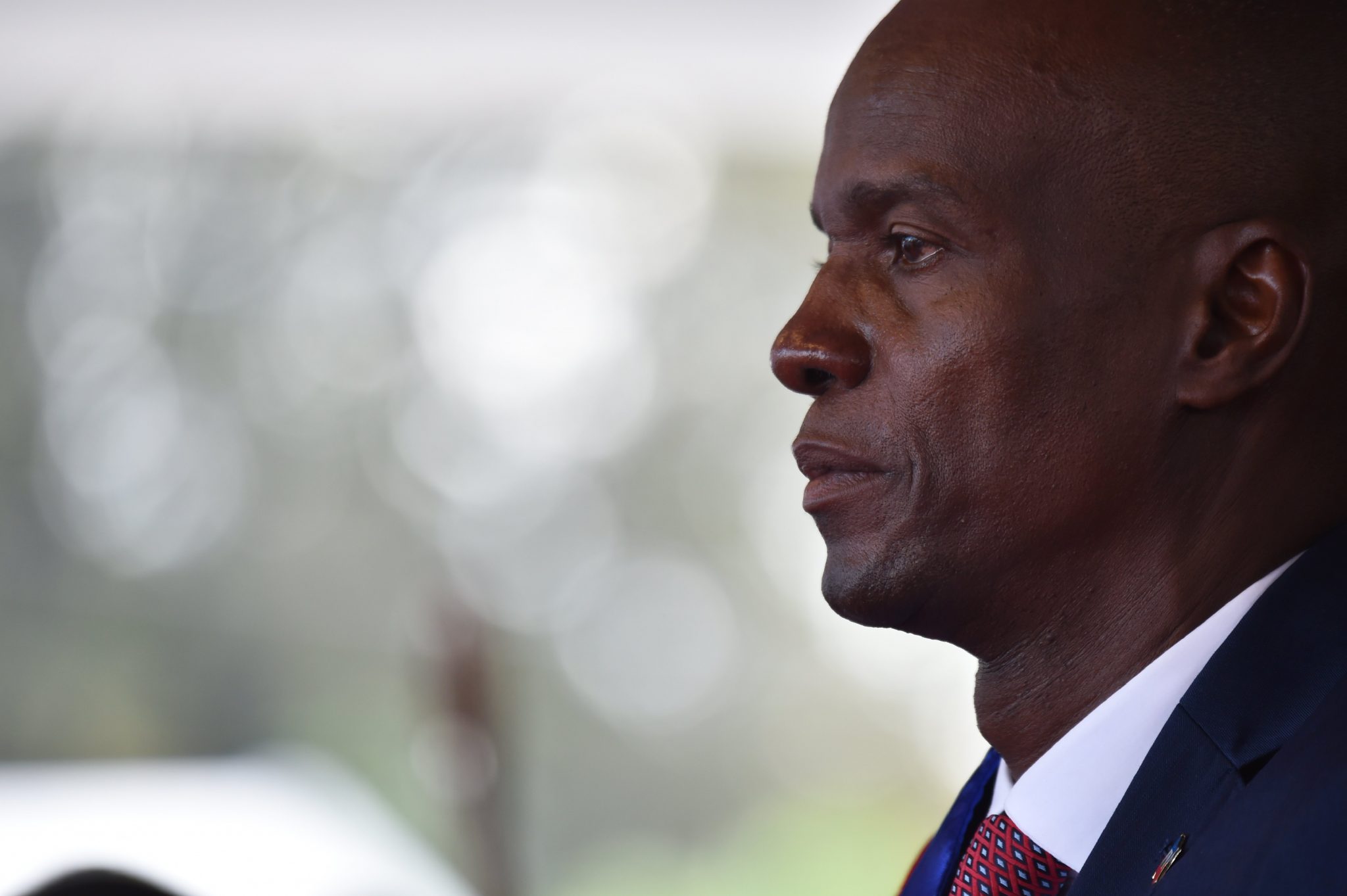
Jovenel Moise was sworn in Tuesday as Haiti’s 58th president, ending a protracted electoral crisis that had created a vacuum of power in the impoverished, disaster-prone Caribbean nation. Moise, a 48-year-old banana exporter who has never held political office, took the oath at a ceremony at the National Assembly.
/ AFP PHOTO /
by Amelie BARON
Agence France Presse
PORT-AU-PRINCE, Haiti (AFP) — Jovenel Moise was sworn in Tuesday as Haiti’s 58th president, ending a protracted electoral crisis that created a power vacuum in the impoverished Caribbean nation.
Moise, a 48-year-old banana exporter who has never held political office and is not well known to the general public but ran as the candidate of the center-right Tet Kale Party (PHTK), took the oath at a ceremony at the National Assembly.
He was former president Michel Martelly’s hand-picked choice to lead the poorest country in the Americas.
“I congratulate you because you have chosen democracy rather than anarchy, the road to peace rather than violence, order and progress rather than disorder and crime,” Moise said in his first speech after taking the oath of office.
He said he would work to boost the economy and lure Haitians living abroad to come back home, invest and create jobs. An estimated two to three million people who are Haitian or of Haitian origin live outside the country, which has a population of about 10 million.
Haiti is also fighting to emerge from a major cholera outbreak, with an estimated 30,000 cases expected this year, as well as the effects of the January 2010 earthquake, with tens of thousands of people still camping in tents without proper sanitation.
The government and aid officials have said Haiti needs nearly $300 million to provide urgent assistance for its most vulnerable inhabitants, including those affected by Hurricane Matthew last October.
The hurricane caused $2.8 billion in damage, and more than 1.5 million people are still in dire need of humanitarian assistance, said El-Mostafa Benlamlih, Representative of the United Nations Stabilization Mission in Haiti (MINUSTAH).
Lengthy political crisis
Moise’s election brings to a close a political crisis that began in October 2015 when the results of a first round of voting — which Moise won — were annulled because of massive fraud.
In February 2016, with Martelly’s five-year term nearing its end and his political succession in limbo, Haiti’s legislature elected Jocelerme Privert, president of the Senate at the time, to be interim president.
The presidential election was rescheduled for October and then postponed to November in the wake of Hurricane Matthew.
Haiti’s political temperature remains high, with several of Moise’s main opponents contesting his first-round victory.
The businessman is also at the center of a money laundering probe. He denies any wrongdoing.
The investigation was launched in 2013 as a routine bank-regulation procedure. The Central Financial Intelligence Unit forwarded a secret report about the inquiry to prosecutors last summer.
However, the investigating judge took no action until four opposition senators recently demanded information about the findings.
The judge delivered the conclusions to the government prosecutor, who has made no public announcements on the case.
Moise was declared the winner in November with 55 percent of the votes, but with a dismal turnout of just 21 percent.
Austere inauguration
After the swearing-in ceremony, the 2,000-plus guests took seats in the courtyard of the presidential palace to hear Moise’s first speech.
The event took place on the site of the presidential palace, which was destroyed in the 2010 earthquake.
Austerity has been the motto of the inauguration ceremony, as Haiti is suffering from an economic crisis with more than $2 billion in debt and anemic growth that is not expected to top one percent this year.
According to Moise’s transition team, the inaugural costs are close to $1 million, a tighter budget than those of predecessors Rene Preval and Martelly, which cost more than $4 million and $2 million, respectively.
While Martelly — the sole former Haitian president at the ceremony — is a well-known entertainment figure, Moise remains largely unknown to the broader public.
Moise said he had invited 53 other former presidential candidates to signal his willingness to ease political tensions.
© Agence France-Presse








